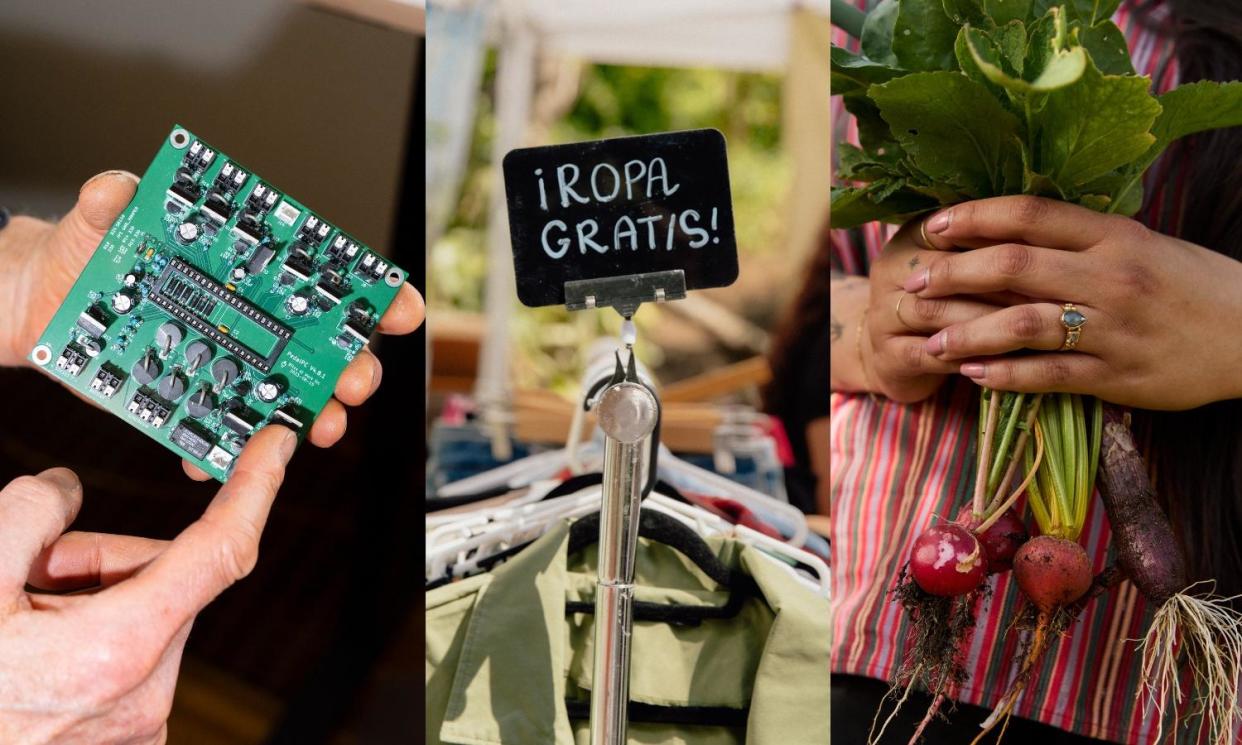Why we’re publishing a series on DIY climate solutions

The hottest year on record. Extreme drought, wildfires and flooding. Despairing scientists, wildlife loss and rampant waste. The sheer scale of the climate crisis can feel overwhelming.
And when it comes to taking serious action, politicians move at a glacial pace, and the very real possibility of another Donald Trump presidency could stymie progress even further.
In the face of such intractability, there’s hope to be found. Real change often happens first at the local level – in our own homes, backyards and communities.
Related: Fast fashion is wasteful, and thrifting is flawed. The solution: swap!
In an election year when we know many US readers are frustrated by the lack of meaningful US and global action to tackle global heating, we wanted to hear from the people creating their own solutions to the environmental challenges they face – from waste and overconsumption to rising food and energy costs, extreme heat and drought.
In February, we launched a callout inviting US readers to tell us about their own DIY solutions. We had a lively response, with dozens of people writing in about their efforts. You’ll meet some of them in this series. You’ll also meet inspiring individuals who have turned their yards into micro-farms, started free clothing swaps, organized low-waste weddings, invented energy saving gadgets, and more.
This series will run throughout the year, and we’re on the hunt for more DIY projects to feature. We’d love to hear from a diverse range of people and communities; no project is too small! We are keen to feature stories from the US west and south-west, where issues such as drought, wildfires, extreme heat and air pollution are at their worst, but we welcome stories from anywhere in America.
If you would like to share your story, send us an email at diyclimate@theguardian.com. Tell us a bit about yourself, your project and why you started it, and the impact it’s had. Please leave contact details; one of our reporters will get in touch if we are interested in finding out more


